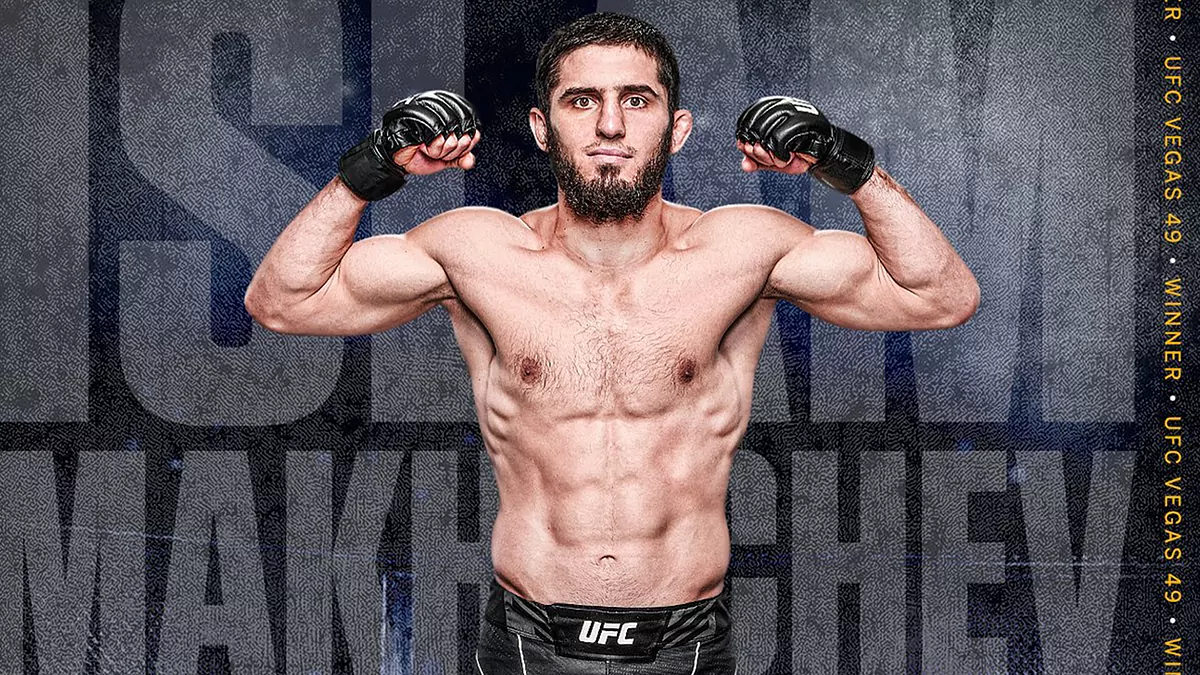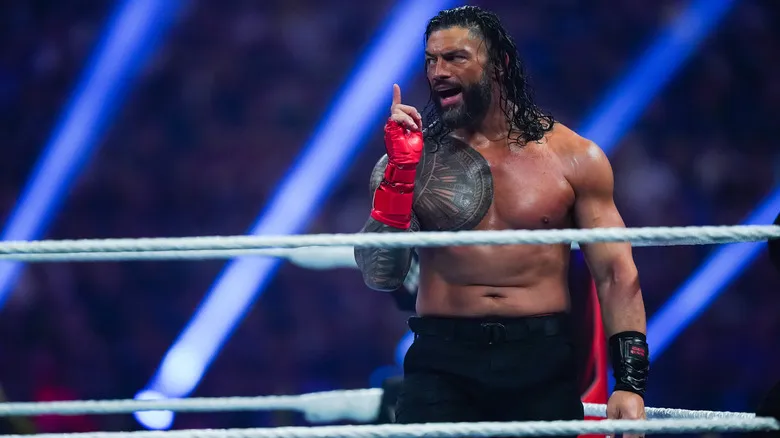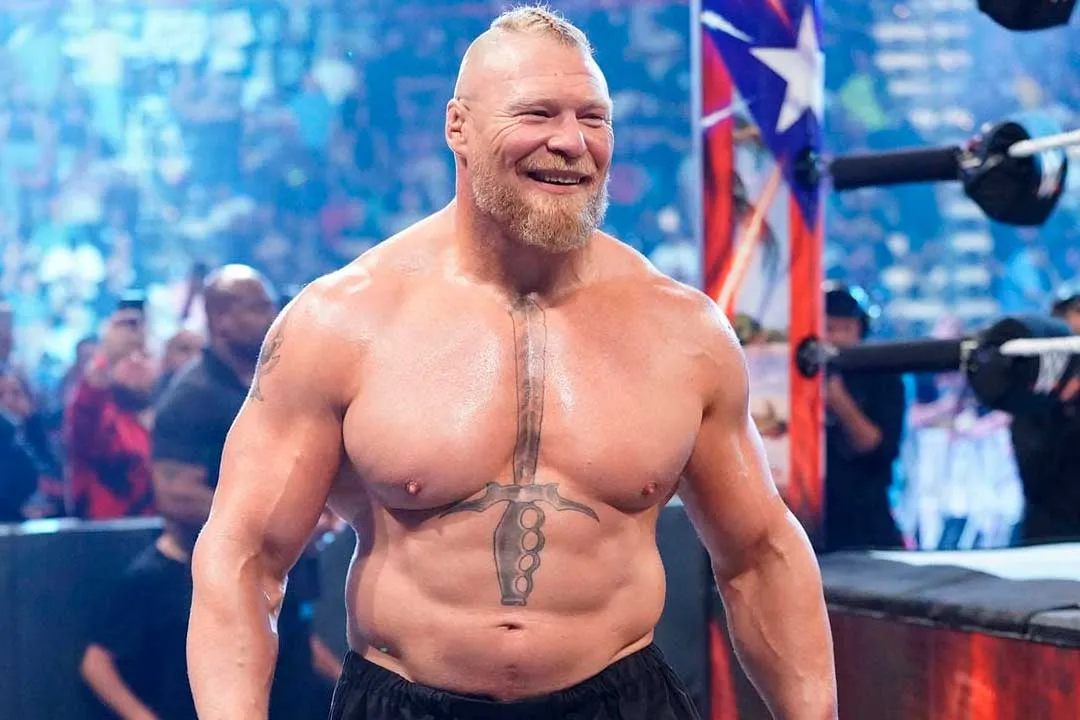

From Lightweight King to Welterweight Challenge: Makhachev Faces Weight Gain Battle
Islam Makhachev, the former UFC lightweight champion, is one of the most technically gifted fighters in mixed martial arts today. Known for his precision wrestling, elite grappling, and measured striking, Makhachev dominated the lightweight division with a combination of skill, strategy, and composure. However, the Russian star recently revealed that moving up to the welterweight division has proven to be more challenging than he initially anticipated, highlighting a physical and psychological struggle that many elite fighters face when changing weight classes.
In a candid statement shared on social media, Makhachev said: “All my life I cut weight, but now when I want to be big, my weight stays in the same position.” This insight reveals the complex difficulties of moving from 155 lbs to 170 lbs, a jump that might seem simple on the surface but is, in reality, a highly nuanced process for someone whose body has been conditioned for years to maintain a specific weight range. Unlike typical gym-goers who can bulk by simply eating more, professional fighters like Makhachev must carefully balance muscle growth, conditioning, and endurance without losing the speed and agility that make them elite competitors.
The Challenges of Moving Up a Weight Class
Transitioning from lightweight to welterweight is far more complicated than simply gaining 15 pounds. For Makhachev, the challenge involves several overlapping physical and technical factors. First, he must maintain the speed and fluidity that were crucial to his success at lightweight. Even a slight decrease in reaction time or explosiveness can be the difference between dominating and being outclassed, particularly against naturally larger opponents who hit harder and have more mass behind their strikes.
Secondly, Makhachev must increase his strength and power to compete against fighters who are already comfortable at 170 lbs. Welterweights such as Jack Della Maddalena, Khamzat Chimaev, and other top contenders possess natural size and strength advantages. If Makhachev fails to gain sufficient muscle mass or power, he risks being outmuscled in grappling exchanges or having his strikes absorbed more easily. Striking at welterweight often requires slightly more force to make an impact, and the precision that works against lighter opponents may need slight adjustments to be equally effective against bigger men.

Finally, conditioning presents its own set of challenges. Fighters moving up a division often need to adapt their cardiovascular training. Carrying extra weight can fatigue the body more quickly, particularly over the course of five rounds. Maintaining elite-level performance while sustaining stamina, explosiveness, and grappling efficiency is no small feat. The delicate balance between bulking up and preserving endurance is a challenge that has historically tripped up even the most skilled fighters in combat sports.
Experts note that fighters moving up a division often face a “catch-22”: gaining too quickly can compromise speed and cardio, while not gaining enough leaves them at a size disadvantage. For Makhachev, whose career has been defined by meticulous preparation and technical dominance, striking this balance will be essential if he hopes to replicate his success at welterweight.
Physical Adjustments and Training Strategies
Gaining weight for elite fighters is not as simple as increasing calorie intake. Makhachev must undergo specialized strength training, likely focusing on functional muscle growth rather than just raw size. Functional strength ensures that additional mass contributes to performance rather than slowing him down. This includes explosive lifts, grappling-specific resistance training, and drills designed to enhance power without sacrificing mobility.
Nutrition also plays a critical role. Makhachev must eat in a way that builds lean muscle while minimizing fat gain, a task that is inherently difficult for athletes accustomed to restrictive cutting diets. The body, conditioned to remain lean for weight cuts, can resist gaining mass, which explains his remark about weight staying in the same position. The combination of nutrition, targeted strength training, and recovery becomes crucial in building a body capable of competing with natural welterweights.
Moreover, Makhachev may need to modify his fighting style slightly. While his wrestling dominance and control on the ground remain key assets, he may encounter opponents who are not only bigger but also stronger, potentially affecting takedown setups and ground control. Similarly, his striking may require subtle adjustments to maintain impact while accommodating a heavier frame.
The Impact on His Welterweight Debut
Makhachev’s first fight at 170 lbs will be an important milestone, not only for his career but also in understanding how well he can adapt physically and strategically to the new division. Fans and analysts will be keenly observing whether he can combine his signature technical mastery with the additional size and strength required to compete at welterweight.
Historically, some fighters moving up weight classes struggle initially, as the speed and power differential can be significant. Yet Makhachev’s disciplined approach suggests that he is prepared to adapt gradually, focusing on incremental improvements in strength and conditioning while retaining the strategic patience that has defined his career. His debut will not just test physical capability; it will also challenge his ability to apply his fight IQ against larger and potentially more explosive opponents.
Mental and Psychological Adjustments
Physical challenges are only part of the equation. Moving up a weight class is as much a mental test as it is a physical one. Makhachev has spent most of his career in a division where he was fully comfortable and in control, mastering opponents at his optimal weight. Transitioning to welterweight means facing fighters with natural advantages in size and power, which can challenge confidence and composure.
Elite fighters often emphasize mental resilience, and Makhachev is no exception. The psychological adjustment involves trusting his skills, timing, and grappling acumen under conditions where opponents may feel more imposing. Success at welterweight will require him to embrace the challenge with the same focus and strategic calm that propelled him to the top of the lightweight division.

The Stakes for His Career
Makhachev’s move to welterweight comes at a pivotal time in his career. He has already proven dominance at lightweight, defeating top contenders and showcasing one of the most technically complete skill sets in MMA today. However, replicating that success in a higher weight class could elevate his legacy to a new level. A successful transition would place him among the few fighters in UFC history to dominate multiple divisions, reinforcing his reputation as one of the sport’s most complete mixed martial artists.
Conversely, the welterweight division presents unique risks. A slow start or a visible struggle to adapt could raise questions about his ability to carry his dominance across divisions. For Makhachev, balancing physical development, technical adaptation, and mental readiness will be key to ensuring that his first fight at 170 lbs is more than just a test—it is an opportunity to cement his status as a versatile, elite champion.
Conclusion
Islam Makhachev’s openness about the challenges of gaining weight for welterweight provides fans with rare insight into the complex adjustments elite fighters must navigate when moving divisions. Gaining functional muscle mass, retaining speed, adjusting conditioning, and building mental confidence are all essential steps in this process. Makhachev’s disciplined training regimen, exceptional fight IQ, and proven resilience suggest he has the tools necessary to navigate this transition successfully.
As the UFC community awaits his welterweight debut, the question is not only whether Makhachev can succeed physically but whether he can translate his technical mastery to a division populated by bigger and stronger fighters. His journey underscores the difficulties and intricacies of moving up a weight class, offering a fascinating glimpse into the challenges faced by even the most elite mixed martial artists. Fans around the world will be watching closely, eager to see whether Makhachev can once again assert dominance, this time at 170 lbs, and continue building a legacy as one of the most complete fighters in MMA history.


















